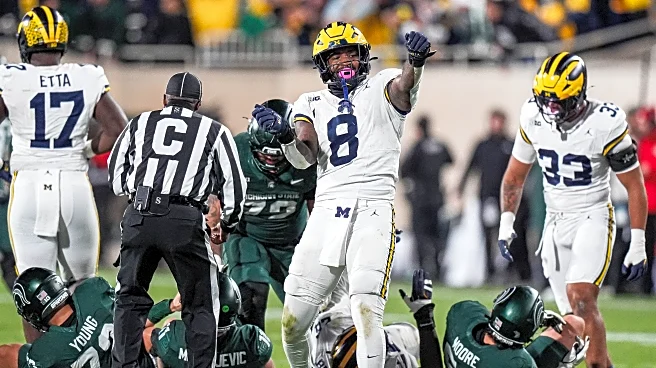What's Happening?
Georgia Tech's football coach, Brent Key, is set to earn a total of $4,500,000 in 2025, according to USA TODAY's compensation survey. This salary places him as the 52nd highest-paid coach in college football and 10th in the Atlantic Coast Conference (ACC). In addition to his base salary, Key has the potential to earn up to $1,375,000 in bonuses for the 2025-26 season, ranking him 7th in the ACC for maximum bonus potential. The buyout clause in Key's contract stipulates that if Georgia Tech terminates his contract without cause as of December 1, 2025, he would receive $11,123,333, making it the 45th most expensive buyout among reviewed contracts.
Why It's Important?
The financial details of Brent Key's contract underscore the significant investment Georgia Tech is making in its football program. The high salary and potential bonuses reflect the competitive nature of college football coaching positions, particularly within the ACC. This investment is indicative of the university's commitment to achieving success on the field, which can enhance the school's reputation and attract top talent. The substantial buyout clause also highlights the financial risks involved in coaching contracts, as schools must balance the potential costs of termination with the benefits of retaining successful coaches.
What's Next?
As the 2025 season approaches, Georgia Tech will be closely monitoring Key's performance to determine if the investment in his contract yields the desired results. Success on the field could lead to further contract negotiations or extensions, while underperformance might prompt discussions about the financial implications of the buyout clause. Stakeholders, including university officials and fans, will be keenly interested in the team's performance and the return on investment from Key's contract.
Beyond the Headlines
The details of Key's contract also reflect broader trends in college athletics, where coaching salaries and buyouts have been escalating. This trend raises questions about the sustainability of such financial commitments and the impact on university budgets. Additionally, the emphasis on performance-based bonuses highlights the pressure on coaches to deliver results, which can influence coaching strategies and decision-making.











